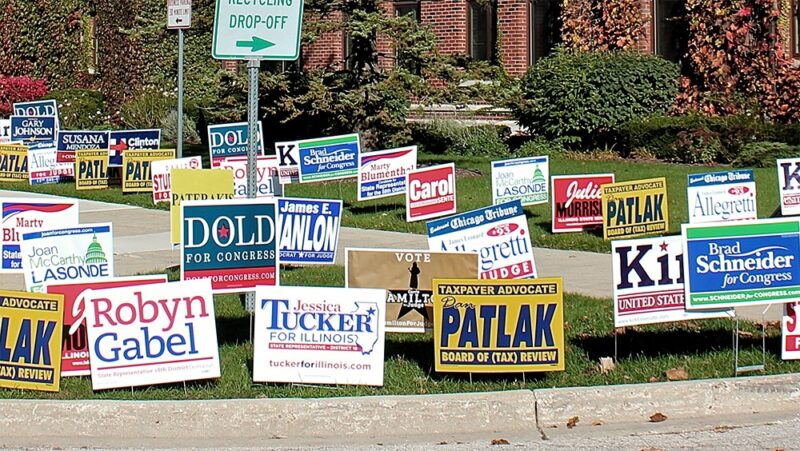Is Opinion Writing Protected by the First Amendment?

The First Amendment protects people’s right to share their opinions (with some limitations) by protecting the freedoms of speech and the press.
In this piece, we discuss how the First Amendment protects opinions – especially unpopular ones – and show why it’s healthy to share and express yours, whether or not others agree with you.
How the First Amendment protects opinion writing
The First Amendment prevents the government from punishing people for their speech. But the freedom of speech broadly applies to many acts of expression beyond speaking – including writing and reading books, putting political signs in your yard, performing arts like singing and dancing, and publishing a written commentary.
Commentary writing is a common way of sharing opinions that’s been part of the country’s DNA since its founding. The relatively young technology of the printing press allowed people like Alexander Hamilton, James Madison and Patrick Henry to print and distribute their opinions on the future of the country as delegates from each state hammered out the original Constitution and eventual First Amendment we enjoy today.
As newspapers and printing technology became more common, commentary sections published a wider range of opinions. Eventually, letters to the editor and similar guest commentary sections allowed more people to share and distribute their opinions, ranging from national politics (e.g., “President Smith’s economic policies hurt the working class!”) to someone’s favorite local pet peeve (e.g., “FIX THE DANG POTHOLES!”).
RESOURCE: How to write an effective letter to the editor
It's one thing to have the right to say things. But without the ability to share and distribute an opinion, even if it’s unpopular, the freedom to speak and write is limited. That’s why speech and the press work together to protect opinion writing. You can think, say, and write something and not be punished by the government for sharing it with a wider audience.
These protections for opinion writing don’t extend just to newspapers or items made on a literal printing press. The freedoms of speech and the press broadly allow you to do things like this without fear of government punishment:
- Publish a letter to the editor or essay in a print or digital publication.
- Broadcast commentary on radio, TV or any streaming service.
- Post your own personal video response to the president’s State of the Union address on social media.
- Maintain your own daily website or subscription newsletter where you comment on news and politics.
- Criticize local, state and national government officials on social media.
But remember, privately owned social media platforms, news outlets and other publications where you might wish to share your views have their own First Amendment rights to decide what to publish. So such businesses aren’t required to publish your opinions.
RELATED: The complete guide to free speech on social media
Why the First Amendment protects a wide range of views
You may have seen a bumper sticker giving Thomas Jefferson credit for the line “Dissent is the highest form of patriotism.”
Whether Jefferson ever said or wrote it is in doubt, but the idea remains: Differing opinions are healthy and essential, even (and perhaps especially) those that criticize and question the majority view.
For example, U.S. Supreme Court opinions give prominent placement to justices in the minority. Their dissenting opinions don’t have the force of law, but they can shape future court majorities and influence public opinion. Former Justice Antonin Scalia, who died in 2016, was particularly well known for his influential and memorable dissents.
RELATED: What speech is (and isn't) protected by the First Amendment?
Aside from notable dissenting opinions, the Supreme Court also recognizes the important role having a wide range of views plays in our democracy. That’s why the court has upheld political speech of all kinds and from all angles as the most important kind of speech that deserves the highest level of protection against government censorship.
Allowing expression and opinions from a wide range of views might be uncomfortable, even offensive, but it is how people learn new perspectives, see issues in a different light and sometimes change their minds.
It can also serve the important purpose of reinforcing your views. Encountering opinions and perspectives different from our own helps people better understand their positions and explore ways to counter ideas they disagree with. This underlies the idea of diverse opinions encouraging the “marketplace of ideas.” Just as having many options in a grocery store leads to better prices and choices for consumers, having more ideas to encounter and engage with can ultimately make democracy healthier and more robust.
Many people (and other countries) say some unpopular speech goes too far and should be illegal. But what is unpopular is often in the eye of the beholder or ear of the hearer. People may not want to hear opinions they consider hate speech, but it’s also a slippery slope asking the government to outlaw hate speech because it’s offensive. An important distinction is that hate crimes are illegal and differ from hate speech.
Freedom Forum’s annual survey of people’s feelings on First Amendment issues shows 24% of Americans think hate speech should be illegal.
Opinion writing and First Amendment limits
The foundation for having, writing and sharing your opinion is the First Amendment’s protections for speech and the press. Though as with all rights, they are not absolute.
The First Amendment does not protect actions like libel and defamation, obscenity, true threats, inciting violence, or stealing someone else’s writing and presenting it as your own (plagiarism).
Someone may claim that saying or writing such things is their opinion and can’t be punished. But if the speech in question meets the specific legal definition of a category of speech that is not protected, a court may rule that the First Amendment is not a defense.
Scott A. Leadingham is a Freedom Forum staff writer. Email
10+ of the Most Prominent Sports Protests of All Time
Sign of the Times: When, Where and How Political Signs Can Be Restricted
Related Content

